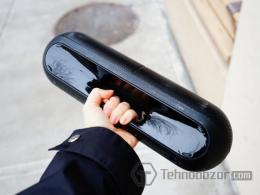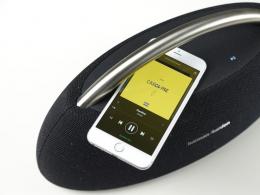Can you use your phone on an airplane? Can you use your mobile on an airplane? How does the phone affect the plane.
During air travel, many passengers are faced with a ban on the use of mobile gadgets, and sometimes devices are required to be left in the luggage compartment. Such rules cause dissatisfaction among passengers and a lot of questions, because almost no company explains the reasons for its appearance. So is it still possible to use the phone on the plane, and what are the restrictions on mobile communications and the Internet?
Reasons for the phone ban
It is believed that mobile phones can interfere with aircraft navigation and radio systems, especially precision approach systems and ultra-high frequency stations.
Previously, it was believed that mobile communication interferes with the operation of aircraft devices, but scientists and just inquisitive passengers have empirically proven that it is absolutely safe for electronics. But even after the results of the experiments were made public, many carriers left the ban on the use of gadgets in force. Experts explain the limitation by a number of factors that can provoke inconvenience and trouble for the crew and passengers.
- Reinsurance against interference. Despite the evidence that mobile gadgets do not interfere with on-board electronics, airlines are trying to protect the equipment that people depend on as much as possible. This decision is explained by the fact that even if 1-2 phones do not interfere with the operation of the devices, then 100 simultaneously turned on devices can create certain difficulties.
- Eliminate distraction. The takeoff and landing of the liner, and especially non-standard situations on board, require complete composure and precise execution of the flight attendant's commands. In emergency cases, even one delayed passenger, distracted by a conversation or social networks, can cause serious trouble for himself and his neighbors.
- Avoiding conflicts. Some of the passengers may be annoyed by a fellow traveler who endlessly talks on the phone or takes selfies, which ultimately leads to unnecessary disputes, quarrels with an unpredictable ending.
- Passenger safety. During turbulence, bulky smartphones and tablets with large screens can turn into traumatic objects.
- economic factor. Some airliners have paid Wi-Fi on board, so the ban on the use of mobile networks is often explained by the desire to earn additional income.
Most major airlines have opted for the alternative. They ask passengers to put their phones in a special “Flight” mode or turn them off during takeoff and landing, and the rest of the time, gadgets can be used without restrictions.
Does the network catch on board

Mobile communication on board is an expensive pleasure for both telecom operators and passengers
The availability and quality of the telephone network on board aircraft depends on the country, the airline and the specific operator. The signal from conventional mobile towers is not available at high altitude, so the liners are equipped with special base stations (picocells). For signal transmission, they use satellite channels, and a significant drawback of such equipment is its high cost.
In order for subscribers to gain access to mobile networks, the operator must enter into a special agreement with the service provider. Accordingly, calls from an aircraft are made at the price of international roaming and cost a round sum. Therefore, passengers use the service in rare cases, equipment costs do not pay off, and many airlines (including Aeroflot) simply refuse it.
Is it possible to charge the gadget on board

Not all models of domestic aircraft are equipped with sockets and USB connectors, which is why it is recommended to charge the phone before flying at the airport
The ability to charge a mobile gadget on board an aircraft depends on the aircraft class:
- business class lounges are equipped not only with sockets, but also with USB connectors, which are installed near each seat;
- when flying in economy class, you need to clarify this issue even before landing - modern air carriers are trying to increase the comfort of passengers, but sockets are often absent in older models.
But when traveling on low-cost flights, it’s better to take care of charging your phone in advance - such companies save on absolutely everything, so many useful services are not available on board.
How many phones can you take on a plane

In order not to get into a difficult situation when transporting several mobile phones, it is necessary to study the customs rules of the airline
To find out how many gadgets you can take on board, you need to check the customs regulations of the country where the traveler enters. If phones, tablets or other devices are for personal use and not packed in boxes, then even 2-3 units usually do not raise questions. But 10 new identical models of gadgets in factory packaging can create trouble - the passenger will have to prove the absence of commercial interest, which will be extremely difficult.
Rules for using the gadget in different airlines

The phone is asked to turn off the phone during takeoff and landing so that passengers are not distracted and can respond to an emergency
Each airline has its own rules for the use of mobile gadgets on the plane, which is better to read in advance. The requirements of all Russian carriers are almost the same.
Aeroflot and Pobeda
Aeroflot and Pobeda are asking passengers to turn off mobile phones on the plane or switch them to special modes (Flight, Autonomous). It is strictly forbidden to use gadgets with an activated data transfer function, including Bluetooth. If the ship's commander suspects that the devices are interfering with on-board equipment, he may request that all devices be turned off, with the exception of pacemakers and hearing aids. Some domestic liners have a Wi-fi service, but you can use it only when the “Turn off phones” sign is off.
S7 Airlines
Starting from 2016, S7 Airlines has allowed passengers to use mobile gadgets if they are switched to the special flight mode. The restriction on larger equipment (laptops) continues to apply during takeoff and landing, and the rest of the time it can be used with the data function turned off.
Nordwind
On Nordwind flights, it is allowed to use mobile gadgets switched to "Autonomous" or "Airplane Mode" at all stages of air travel. During landing and flight, you can work on netbooks and laptops with Wi-Fi / Bluetooth turned off. All devices that do not have special modes that block data transfer, as well as wireless headphones, are prohibited. If the ship is equipped with a sign that reads "Turn off phones", use of the devices is allowed only when it is not active.
During the flight, the passenger is obliged to strictly follow the rules established by a particular airline. It is not recommended to enter into conflict with the crew, as disputes will not give any result. In addition, as a punishment for violating security, the disputer will be fined or removed from the plane without compensation for the cost of the ticket.
Compared to other types of travel, flying by plane has the largest number of procedures and rules. Many of them are incomprehensible to travelers, for example, why can't you use your phone on an airplane?
The passenger hears the request to turn off mobile devices at the very beginning of the flight - this rule applies to all flights and in most airlines. Can the use of mobile phones have a negative impact on the operation of an aircraft? Of course, one call is unlikely to lead to a plane crash, but for the sake of safety, it is better to play it safe and put the device in flight mode.
What is the reason for the ban on the use of phones on the plane
There are two main reasons why it is forbidden to use a cell phone in flight:
- The mobile phone may interfere with the operation of the aircraft navigation device;
- Mobile phone signals can jam the signals from the tower and the beacon.
Probably everyone is familiar with the hiss and junk of the computer, if they are using the phone nearby, and the phone rings. Something similar can happen with aircraft instruments. If all passengers turn on their phones at the same time and do not set airplane mode, the consequences can be unpredictable, so no airline can risk safety.
The risks are related to the fact that when the aircraft is at an altitude of more than 3 km, the signals from the used mobile phones reach the ground communication towers. It is assumed that this can overload the networks on the ground and even disable them. Also, phone radiation can adversely affect the operation of on-board instruments and create difficulties for pilots. This is especially important during takeoff and landing - at this stage, all electronic devices of the aircraft must work perfectly and without failures. That is why it is necessary to exclude all factors that can create interference on board.
In 2014, the Aircraft Safety Association stated that, according to the latest research, cell phone use does not affect normal flight patterns. For this, a special experiment was carried out - scientists went to the airport, while other specialists used the mobile frequency generator on the plane. For a long time, aviation equipment has been exposed to waves of various cellular phones, ranging from the simplest to the most modern mobile phones.
Surprisingly, the included phones had no negative effect on the aircraft's electronic devices and the communication system itself with the ground at any altitude.
So why, then, do airlines ban cell phones? The fact is that experiments under ideal conditions are one thing, and real flight is a more complex and unexpected process. There are also many small systems in the aircraft, and it is impossible to check the operation of each of them. If there is at least one chance that using the phone can disrupt the operation of the aircraft, then it is better to play it safe and transfer it to offline mode. In addition, new cell phones regularly appear that operate at different frequencies, and all of them have their own characteristics.
Why You Shouldn't Use Your Samsung Galaxy Smartphone on Airplanes
Today, a special ban on operation applies to the popular smartphone Samsung Galaxy Note 7. It is forbidden to turn on the device during takeoff and landing, throughout the flight, it is forbidden to charge the phone on board the aircraft. Many airlines, including Aeroflot, have imposed a ban on the Samsung Galaxy Note 7 in checked baggage and carry-on baggage.
An attractive smartphone, through the fault of the developers, has become a device of increased danger. Within a month after the release of the technical novelty, about 70 cases of spontaneous combustion and explosion of the phone were recorded. The Samsung Galaxy has a built-in lithium-ion battery, which, if ignited, can even damage the skin of an aircraft.
It is worth noting that most airlines have long stopped accepting devices with large batteries for transportation. Therefore, if you are going to travel with Samsung Galaxy, it is better to replace it with another phone. There is a chance that you simply will not be allowed on board with such a cell, and no one will figure out which version of Note 7 is - dangerous or new and improved.
Other reasons why it is forbidden to use the phone
- Maintain order and silence. Imagine what it would be like on an airplane if all passengers neglected the offline mode? Due to the strong noise, you can listen to the important instructions of the pilot and the recommendations of the flight attendants. And in the event of a critical situation, it is important that everyone act together and not be distracted by anything.
- The comfort of other passengers. Many people want to read in silence, sleep or just enjoy the beauty of the sky from the porthole. But this whole atmosphere can be grossly violated by a neighbor who has not set the flight mode and has been solving his domestic issues by phone for half an hour. Therefore, in order to avoid complaints and conflict situations, it is easier for a company to prohibit the use of mobile phones.
Airplane mode is available in any phone and is set in a couple of seconds. It disables the cellular system, Bluetooth and Wi-Fi. Activate the mode before the ship takes off and use other mobile features. If necessary, you can turn on the phone for a couple of minutes to send a message, but only when the plane has already gained altitude.
“Stylish new phone, we need it everywhere.
Everyone needs him like water: call back and forth.
Chat about this, about this, or so, to be alone.
A mobile phone is a must these days. Without it, we do not leave the house, do not make trips, do not get on the train, plane. “Please turn off cell phones and do not turn them on until the plane has completely landed” - every traveler hears such words, sitting in an easy chair of the liner and preparing to take off.
But why can't you use your phone on an airplane? Does it threaten the safety of the flight? Or is there another reason? Let's figure it out.
Expertise speaks
The airliner is distinguished by the complexity and accuracy of the electronic systems. For decades, it was believed that working mobile phones create interference signals that adversely affect the operation of the autopilot. They spoil the readings of aeronautical equipment and interfere with ground services to monitor the flight and establish communication on aircraft.
The Federal Aviation Administration commissioned a study of the possible harm from the operation of the Radio and Aircraft Commission (RTCA) telephones. For seven years, the specialists of the center studied the problem. Hundreds of thousands of flights were involved in the check.
Laboratory research. All electronics generate radio frequency radiation. To determine the strength of cell phone radio waves, the researchers used a special spectrum analyzer and an insulated brass wire container (Faraday cage).
Inside the cage, the experimenters placed things that travelers take with them on board the plane: an MP3 player, a game console, and a CD player. Their radio emission was minimal. But when a cell phone was placed in the cage, the analyzer diagnosed the strongest jump. Does the mobile phone really cause malfunctions in the liner's systems?
This was the first, preliminary analysis. With the support of aerospace aviation engineer D. Gutau, the specialists simulated an exact model of radio communication between the airport's ground services and the aircraft. Armed with a cellular generator, the researchers attempted to disrupt communications and create dangerous interference.
The radio generator creates radio waves of various strengths. Thanks to the device, you can find out at what frequency it works and what strength the radio signal must have in order to disrupt the operation of aircraft systems.
Initially, the tests were carried out on the frequency of GSM 1800 (the common frequency of the cell phone). But the device did not catch the slightest distortion. All equipment of the aircraft functioned safely. But when the mobile phone was retuned to a frequency wave of 800-900 MHz, the analyzer showed a significant deviation in the operation of the aircraft navigation analyzer.
The conclusion of the experts was as follows: a mobile phone (and other devices) operating at a frequency of 800-900 MHz interfere with the operation of aircraft equipment and affect the operation of aircraft orientation systems.
This was the preliminary result. The time has come to check the data of laboratory tests in the field, in practice.
Aircraft testing. The surveyors moved to the take-off area, where they activated the analyzer in the operating liner. For 12 hours they “bombarded” the air with radio frequency signals (they used both modern smartphones and old PCS models).
Most of them supported a frequency of 800-900 MHz. But no interference, violations in the functioning of the equipment of the liner were revealed. Not a single mobile phone interfered with the operation of aircraft systems.
The wires running through the cabin are shielded (protected from extraneous influences). Therefore, no signal from a mobile or other device can disrupt the aircraft's operation system.
So it's safe to talk on the phone during air travel? But why, even after confirmed, official tests, flight attendants strongly recommend turning off electronic devices during the flight?
Why is it forbidden to use a mobile phone?
In fact, you can use a cell phone. But not all planes. Some airlines allow, others ask you to turn off your phone during the flight. What is the rationale for such a ban?
"Easier to ban"
Why turn off your phone? Airline owners are wary. After all, today every day new models of gadgets are released, protocols and standards are changing. Yes, and aviation equipment does not stand still.
There is a theoretical possibility that a modern mobile phone will be able to negatively respond to the operation of navigation systems, create dangerous interference and provoke the crash of the liner.
Constantly conducting new research is economically unprofitable. It is easier to ban than to take moral responsibility for a possible catastrophe that occurred due to the fault of a working mobile phone.
In addition, airlines are afraid that passengers will learn during the flight about any negative incidents on the ground (accidents with aircraft, terrorist attacks, personal tragedies). News like this can be stressful. And a person who is under the influence of factors that destroy the psyche becomes dangerous to others.
Comfort for everyone
I would like to sit in a soft comfortable armchair of the liner and forget about the problems, admire the magical views of the clouds outside the porthole. Taste a delicious lunch brought by a beautiful stewardess and relax. But a restless neighbor sits next to him, chatting on the phone all the time. Or an excited madam loudly discussing the news with a friend.
Airlines are not interested in passenger complaints and their demands for silence in flight. And they are unlikely to want unnecessary conflict situations on board during the flight.
You can divide the salons into those who like to chat on the phone and those who want to fly in silence, where you can’t turn on the phone (as in a cafe with existing smoking areas). It is not difficult to organize such a separation, but why do we need extra trouble for the sake of 2-3 hours of flight? It is easier and cheaper to ban telephone conversations.
Conversations are distracting
The most dangerous moments during the flight are takeoff and landing. Yes, everything happens in the sky. At critical moments, the most important thing for the safety of the passenger is to comply with the requirements of the flight attendants. In dangerous situations, the main thing is well-adjusted, organized and joint actions of passengers and crew members.
Imagine a situation when a non-standard situation occurs on board. The pilot demands the attention of all passengers. And a good half of them are chatting on the phone or playing an online game. It will take 1-2 minutes to turn off the phones, log out of the network. And in critical situations, seconds matter.
Sometimes seconds save lives. The specifics of the arrangement of seats in an air liner is such that just one passenger who hesitates for a couple of seconds causes the collapse of the entire row, blocking their movement.
And when it gets into an air pocket, turbulence or an emergency landing, dropped tablets, mobile phones become traumatic objects.
Have you noticed that during takeoff and landing in the cabin of the Airbus, the lights are turned off? This is not done in order for passengers to admire the glow of lights outside the porthole. In the cabin, the lighting is dimmed so that the crew members and passengers get used to the darkness and, in case of an unusual situation, better navigate the cabin.
And the traveler, having turned his eyes into a bright screen, in a dangerous situation where you need to move freely around the cabin, will turn into a “blind mole” and interfere with other people.
Economic factor
But if you need to urgently contact the land, talk with relatives, make phone calls, you will be allowed. True, not on your mobile phone, but by offering to use your own paid mobile communications. Do airlines want to make extra money by profiting from expensive calls?
Proponents of this theory are sure that airlines prohibit calls to personal mobile phones solely for selfish purposes. Lost additional profit! Such an opinion is not without foundation. After all, any company, organization is interested in receiving dividends by installing access points in the salons.
Everyone in business is looking for sources of additional income. So why not take advantage of this opportunity? 
So what happens if you make a call in the salon? Will they fine you, take away your mobile phone, drop you off the flight? How do different airlines actually treat phone use on board their flights?
Rules in airplanes of different countries
In 2013, the agency responsible for the safety of flights in America and Europe formally allowed the use of mobile phones on airplanes. Mobile phones have received amnesty. But the decisive word remains with the leadership of the airlines. They have the right to dictate the rules.
Most airlines opted for the middle ground, allowing limited use of telephones. Passengers are not allowed to use mobile phones only during takeoff and landing. It is allowed to make calls during the flight, but when the cell phone is switched to “in-flight” mode.
This mode automatically turns off wireless modules during landing / takeoff, and in flight turns on Wi-fi mode and allows the owner to use all the functionality of the gadget.
Europe. Since 2014, European airlines have allowed the use of digital devices (tablets, phones, cameras) throughout the entire flight in any mode. But Austrian Airlines decided to play it safe and left a ban on cell phone calls during the entire flight.
Passengers were only allowed to use tablet devices and laptops (except takeoff/landing). As representatives of the Austrian airlines explained the ban, telephone service makes sense over long distances. And even a businessman who is always in a hurry can withstand 2-3 hours of flight without calls.
Baltic Airlines have also joined them. Airbaltic completely prohibits its travelers from using mobile phones. The ban applies to tablets and PDAs during landing and takeoff.
The first European carrier to allow mobile communications on board the liner was the representatives of the Arab airline Emirates. Arab planes are equipped with a special device that completely eliminates the influence of extraneous signals on navigation systems. The salons are equipped with a miniature station ("Pico-Sota"), which provides satellite communications with land mobile operators.
USA. The primary evidence governing the use of electronic devices by travelers in flight is Circular 92.21-1A, issued in the fall of 2000. Most US air carriers comply with these guidelines. They sound like this:
During the flight in the liners it is allowed to leave the following devices on:
- Hours with digital indication.
- Devices for the hearing impaired.
- Surgical implants (cardio- and nerve stimulators).
Devices that are allowed to be used before takeoff and after landing:
- Computers of any type.
- Pagers, mobile phones and other means with the ability to send electronic texts.
During flight at a given altitude (cruise flight), you can use: 
- GPS receivers.
- DVD, CD players.
- Digital cameras.
- Personal computers.
- Devices that allow sending E-mail messages.
- Mobile phones switched to airplane mode in the "game" phone.
Russia. There are no such regulations in Russia. And the ban on the use of mobile phones in our country remains in force (but flight attendants do not take this rule strictly and are not always forced to comply with it).
Valery Shelkovnikov, head of the Sky Flight Safety analytical company, explains the ban on the use of mobile phones by the fact that Russia has not conducted research on this issue, unlike Western partners. Therefore, the ban remains in force and it is necessary to turn off mobile phones on airplanes.
Requirements regarding the rules for the use of cellular communications on board flights vary. The websites of the airlines will help to accurately break through the ground in order to prepare for the flight. And do not forget, sitting in a comfortable chair of the cabin of the liner, carefully listen to the flight attendant. Before the flight, she will give all the necessary instructions and tell the rules of conduct for the passenger on board the flight and indicate whether it is possible to use the phone.
What to do with the phone on the plane? What happens if you leave it on despite the ban? Is there a connection at high altitude? Today we will try to find the answer to these questions ...
Should I take the phone on board the plane and why it can be difficult?
You can take your phone with you on board the plane, but whether they will be allowed to use it depends on the orders of the airline's management.
The structure of the aircraft is particularly complex, and its air navigation equipment, autopilot, control display, communication structure can sensitively respond to interference from the use of mobile phones, tablets and other digital devices.
However, this version has roots ten years ago. Aircraft manufacturers have studied the impact of mobile devices on the operation of aircraft and concluded that there is no direct impact, and talking on the phone during the flight will not cause interference or other threat to the movement of the aircraft.
For this reason, American and European airlines lifted the ban that prevented the use of phones on board, however, this happened not so long ago - in 2013.
The situation with phones on board - USA, Europe, Russia
- An airline from the United States, during takeoff and descent, will allow you to use a digital device offline, but the Internet access will open only at an altitude of three thousand meters above ground level.
- Since 2014, the European Agency responsible for aviation safety has allowed the use of laptops, mobile phones and other digital devices on board in any mode, without reference to the flight stage.
- Russian airlines have taken categorical measures and will not allow the use of electronic equipment on board their aircraft during takeoff. This measure is not legally justified (the current aviation security rules only regulate the transportation of electronic devices, equipment and equipment), the reluctance to turn off digital equipment in the aircraft cabin can provoke a serious conflict that will end with the removal of the passenger from the flight, cancellation of the boarding pass and compensation for damages caused by the delay flight. And the reason for all this will be a violation of safety rules during the flight.
“I am calling you from a height of ten thousand meters ...” - is this possible?
The ability to call relatives or friends during the flight again depends on the airline and its arrangements with roaming operators. Some manage to provide their passengers with both Wi-Fi and high-quality mobile communications, such as AeroMobile from Emirates.
But such services are not always in high demand, so not all airlines are in a hurry to introduce them, and some even refuse them altogether.
Pilots and flight attendants strictly adhere to the rules and regulations of the airlines they work for, but today it is clear to everyone - both the crew and passengers - that mobile devices do not affect the quality of the aircraft. But in order for the flight to be successful and conflict-free, we advise you to carefully listen to the instructions of the flight attendants and follow them unquestioningly.
There is a myth that you need to turn off your mobile phone in the cabin, otherwise the “winged bird” will definitely fall during the flight. True, people who have already been on board (or often fly) may notice that sometimes passengers use phones - and neither the plane crashed nor the flight attendants raised a scandal. So can it be turned on or not?
Ten (or so) years ago, every flight attendant asked passengers to turn off their cell phones without fail, since their work could result in interference in the equipment of the aircraft itself, that is, provoke their incorrect operation, which at best could result in a heading error, and in worst - a crash on landing.
However, later the developers of smart flight equipment calmed down: there is nothing to be afraid of phones, and even if your child forgets to turn off his “pipe”, nothing will threaten the safety of passengers. However, many companies continue to frighten with "interference" in the old fashioned way, urging them to "mute" all their equipment. Why are they doing that?
- This is normal insurance.. It is difficult to keep track of all the developments in the world. Who knows, maybe in a month or two someone will bring that very dangerous, especially “fancy” phone from China?
- Passenger safety. Firstly, suddenly the cabin shakes during turbulence, the glass “brick” can fly out of your hands and break (or fill someone with a bump). Secondly, if an emergency situation suddenly happens, the passenger who has become stuck in the gadget will not be able to quickly respond to the commands of the stewardess. Or here's another example: the plane shook, the passenger screamed in fright and accidentally pressed the button to end the conversation, and her telephone opponent on the ground had a heart attack: "That's it, the plane is falling!"
- It is unprofitable for airlines in terms of money.. It's easier for them to turn off all private phones and offer everyone their own paid connection points.
- Convenience of other passengers. Even in some minibuses, they ask you not to talk on the phone, as this distracts other people. But it's a half hour drive. Imagine what it's like to listen to someone's dirty jokes, love stories or complaints about an unfair life for three hours in a row?
So is it allowed or prohibited?

Officially - you can, as much as you like. This is even confirmed at the “legislative level”. In 2014, both American and European aviation safety agencies allowed phones to remain on in the cabin…
But! The airlines still have the last word. And they use this right to the fullest extent. Let's say:
- there are no bans at all on some planes (European air carriers are more often such democrats);
- in others, they are asked to necessarily transfer the device to “flight mode”;
- thirdly, they insist that the "pipes" be turned off during takeoff and landing, and during the flight they can be used without restrictions (most often such rules apply on board American companies);
- in the fourth, it is not allowed to chat, only write SMS or sit on social networks;
- and fifthly, they may be asked to turn off the “pipe” for the entire duration of the flight (travelers who board a Russian carrier often complain about such draconian rules) ...
How to find out the rules by which each particular company “lives”? They are posted on the websites of companies, and of course, they are voiced by flight attendants before the start.
Is it worth arguing with a flight attendant, waving a printed set of rules in front of her nose? As the experience of overly civic travelers has proven, no. The network has information that on some particularly strict flights, passengers were removed from the plane for refusing to turn off not only a mobile phone, but even a digital camera.
And do not rush to get angry at the stewardess - she understands very well that the cell phone does not carry a danger, but she is dominated by the rules of the company, which she must comply with. And if she is told to make everyone "turn off the engines", she will do it, sometimes - under the threat of losing her place.
Is it possible to call home from a bird's eye view?
Some companies make an agreement with cellular operators, so they even offer people to connect to the aircraft line. However, this will be a roaming service, and you can use it only in two cases - you really have something important, or they just don’t peck money. It is very expensive, so most passengers prefer to "be patient" until landing.
However, there are carriers offering Wi-Fi to passengers. In such winged ships, everything is much simpler - launch Skype and communicate with anyone you want!
Can I charge my phone or laptop on board?

Sometimes the flight takes about 10 hours, and if some passengers are just bored, dozing or leafing through books all this time, then for others the issue of a “long-playing” phone with cartoons or toys is extremely important (especially if small children are flying with them - take away their mobile phone or a tablet, and they will plague the entire plane with their antics or tantrums).
The good news is that business class has power outlets. And even more than that - each chair is equipped with a USB connector.
However, sometimes the outlet can be found in the economy. Of course, if you got on an old plane, your chances are slim. If it's new, you can look under the chair or ask the flight attendant - you may be able to recharge.
And of course, no one has canceled Powerbank yet!
But a phone is a phone, but are there things that should never be done on board? Certainly! A website that specializes in embarrassing cases that happened to passengers on flights (yes, there is such a one) has compiled the top 10 most unpleasant situations in which people all over the world have fallen because of their awkwardness, inexperience, and even rudeness. More details in this video:






